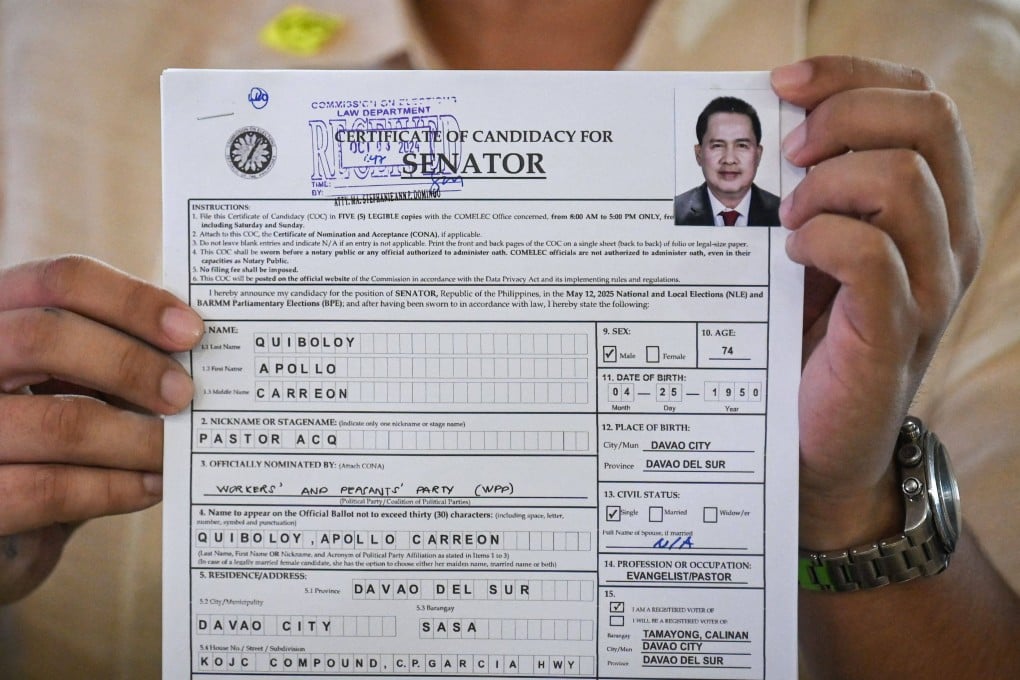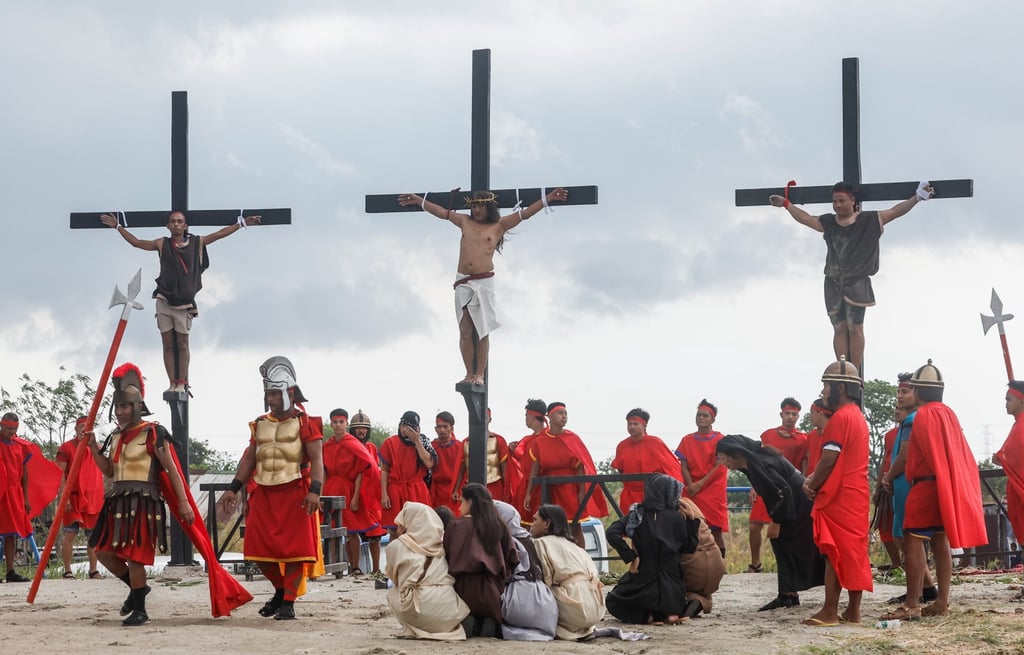Apollo Quiboloy’s Senate bid tests ‘unholy’ grip of religion on Philippines politics
As his legal troubles mount, the Duterte-linked pastor’s candidacy blurs the lines between religious influence and political power

As the head of the Kingdom of Jesus Christ (KOJC) megachurch, Quiboloy faces multiple charges in the Philippines, including child sex abuse and human trafficking. He has been placed on the FBI’s most-wanted list for similar offences. His legal counsel, who registered Quiboloy’s Senate candidacy on his behalf, argues that the 74-year-old pastor is eligible to run for public office since he has not yet been convicted of any charges.
Despite the Philippine constitution’s assertion of a separation between church and state, faith – particularly Christianity – has long been intertwined with politics in the country.
Nearly 89 per cent of Filipinos are Christians, most of them Roman Catholics – a legacy of over 300 years of Spanish colonisation.

